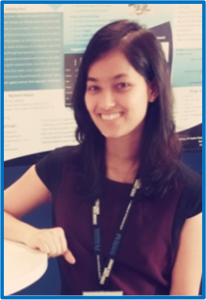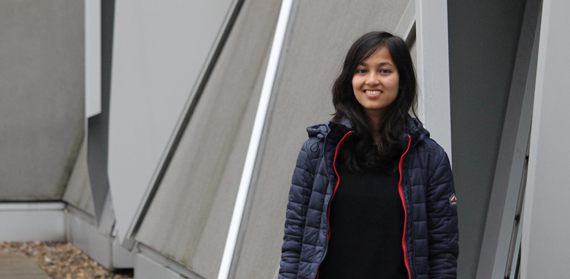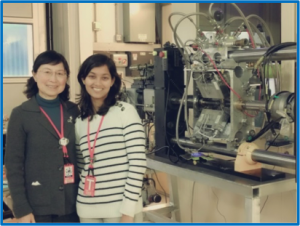Guest post by Romali Biswal, Centre for Materials and Manufacturing Engineering
Knowledge is power. The domain of knowledge is infinite and the implication of power invokes a thousand different meanings. I have always been curious to know, to learn and to enlighten my mind with the power of knowledge. Thus, with a background in scientific research, I decided to do a PhD at Coventry University and pursue a career in cutting edge research and development.
Currently I am completing a PhD degree at the Manufacturing and Materials Engineering Research Center in Coventry University. One of the typical questions you are subjected to as a PhD student is: Why a PhD? Somehow I feel that the notion of a PhD has been invariably associated with something extremely tedious and difficult. Though this argument holds water to some extent, I believe that there is a lot more to a PhD. An undergraduate degree is like the first stepping stone: it helps one to lay a solid foundation in the key knowledge areas of a particular stream. A Master’s degree allows you to hone your skills further and gain deeper insights in specific research areas. Finally, in the pursuit of a PhD you put all your acquired skills and expertise into use to push the knowledge horizon further. It wouldn’t be farfetched to say that when we visualise the PhD degree in the bigger picture, we can appreciate why it can be so challenging, difficult, yet exciting for an individual to embark upon that journey.
In order to make an individual and tangible contribution to the existing ocean of knowledge, it is first essential for the PhD candidate to go through the existing knowledge database in their field of interest. Enrolled in September, 2015, I am in the final stage of the literature review phase and based on my past 6 months of study I have decided to develop and validate a finite element model to predict the impact of material defects on the mechanical performance of additively manufactured materials.
Though I hail from the country of India, I currently belong to the ever expanding community of international PhD students. Fortunately for me, my parents provided me with ample opportunities to explore the field of music, dance and academic studies in equal measure. I was more inclined towards the “physics” of things and hence decided to make a career in the field of Science and Technology. After graduating with honours in Mechanical Engineering from the College of Engineering and Technology, Orissa, I had the opportunity to work in one of the leading nuclear research organisations in India called Indira Gandhi Center for Atomic Research (IGCAR). This work experience helped me to appreciate the need for an engineer to know the subject in depth, so I progressed with a Master’s degree in Mechanical Engineering. As part of my Master’s project, I designed a novel technique for in-pile creep rupture detection in fuel clad tubes. This project was successfully tested for feasibility and has been planned to be tested in the reactor. Due to my contribution, I was awarded a departmental achievement award and an outstanding promotion in the organisation. I have published two papers on laser welding technology at the International Conference on Structural Integrity in 2014 and Indian Institute of Welding International Congress in 2014. I can say that expl oring these intriguing areas of science under the tutelage of some of the finest minds at IGCAR has been a huge learning experience for me.
oring these intriguing areas of science under the tutelage of some of the finest minds at IGCAR has been a huge learning experience for me.
While seeking further opportunities to expand my skills and expertise, I came across my present PhD project at Coventry University. Finally, I zeroed in on one that can go a long way in improving the material manufacturing processes in the aerospace domain. In Aerospace Engineering, the margin for error is minimal and my problem statement is to resolve the issue of unpredictability of the mechanical performance of additively manufactured aerospace materials, which are expected to have inherent material defects. It is a very challenging task and each day I get to learn a bit more about the subject.
Additive manufacturing or 3D printing technology is more eco-friendly as compared to existing manufacturing processes. Even though the technology was developed over 3 decades ago, its commercial implementation in the aviation industries is still under a lot of scrutiny due to the existing performance unreliability. Moreover, this technology can be effectively implemented in a wide range of industries from automotive to medical implants.
My research focus has been on developing a way to quantify the detrimental effect of these material defects so that the unreliability hurdle associated with additive manufacturing can be overcome. Implementing additive manufacturing in aerospace industry can lead to higher fuel savings, efficient material utilisation and hence making the airplanes more cost effective. In other words, flying will be less expensive.





Comments are disabled